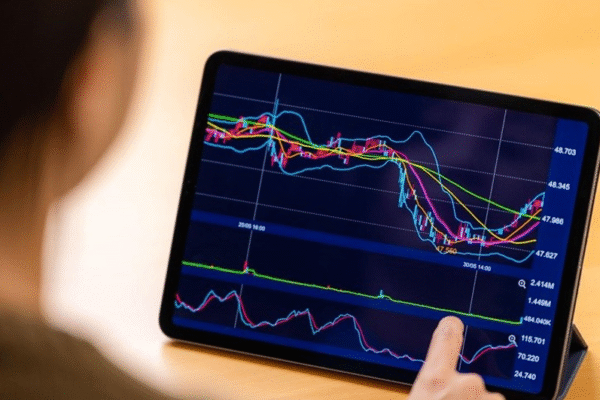A well-chosen trading account lays the foundation for a smooth and successful investment journey. It is not just about opening an account with any broker, as the real difference lies in the features and tools it offers. From intuitive and user-friendly platforms to competitive brokerage charges, reliable research support, and robust security measures, every detail matters. The right account should make trading efficient, secure, and hassle-free while supporting informed decision-making. By focusing on these essential features, investors can navigate the markets with greater confidence and work toward achieving their financial goals.
A well-chosen trading account lays the foundation for a smooth and successful investment journey. It is not just about opening an account with any broker, as the real difference lies in the features and tools it offers. From intuitive and user-friendly platforms for online trading to competitive brokerage charges, reliable research support, and robust security measures, every detail matters. The right account should make trading efficient, secure, and hassle-free while supporting informed decision-making. By focusing on these essential features, investors can navigate the markets with greater confidence and work toward achieving their financial goals.
Key Features of a Good Trading Account
A good trading account offers a range of features that make investing efficient, secure, and convenient for both beginners and experienced traders.
1. Easy-to-Use Interface
The first thing to check should be how simple the platform is to use. A good trading account doesn’t confuse you with cluttered menus or hidden options. Instead, it offers a clean layout where even a beginner can place orders, track prices, or review holdings without second-guessing. The easier the interface, the fewer the mistakes, and the faster you act.
2. Real-Time Market Data
The market moves quickly, sometimes within seconds. That’s why real-time updates are crucial. A solid account gives you live stock prices, news alerts, and ongoing market shifts as they happen. Without it, you may miss key opportunities or base decisions on outdated information.
3. Advanced Charting Tools
Charts tell the story of a stock’s journey. From candlestick to bar and line charts, these visuals help you study patterns. With technical indicators such as moving averages or the RSI, traders can identify trends and plan their moves. A trading account that bundles these tools together makes analysis much easier.
4. Custom Alerts and Notifications
Monitoring the markets all day is impractical, which is where alerts become important. You can set specific triggers, such as a stock price crossing ₹500 or a sudden surge in trading volume, and receive instant notifications. This ensures you can act promptly on opportunities without needing to monitor the screen constantly.
5. Safety and Security
When you invest through a platform, you are entrusting it with both your money and personal information, making security a top priority. Essential features include two-factor authentication, encryption, and secure login processes. Equally important is the platform’s reliability, as an unstable system or outages during trading hours can lead to missed opportunities. For example, Findoc is a trusted trading platform known for its consistent performance, robust security measures, and stable operations, ensuring a safe and uninterrupted trading experience for investors.
6. Transparent Low Fees
Every trade comes with brokerage charges, and high fees can gradually erode your overall profits. A good trading account offers competitive and transparent fees, without hidden charges in the fine print. Even for small investments, keeping costs low and clear can significantly impact your returns over the long term.
7. Compatibility with Financial Tools
Investors rarely stick to a single type of investment, holding a mix of shares, mutual funds, and ETFs. Managing them separately can be challenging. Choosing investment accounts that connect with tax calculators, research tools, and portfolio trackers can simplify this process. It saves time and effort while providing a clear and consolidated view of your overall financial position.
8. Educational Resources
For beginners, guidance is as valuable as the platform itself. The best accounts come with tutorials, guides, and webinars that explain everything from opening a Demat account to using advanced charting. A platform that helps you learn while you trade is far more useful than one that only executes orders.
9. Customer Support
No matter how advanced a platform is, issues can still arise. When they do, prompt and effective support becomes essential. Choose accounts that offer multiple support channels, such as phone, email, or live chat, with quick response times. Reliable customer service can help resolve problems efficiently and save you significant stress during critical moments.
10. Mobile and Desktop Access
Investors today value flexibility. Mobile apps allow you to check updates or approve trades on the go, while desktop platforms typically offer more advanced analysis tools. Having access to both ensures you are well-equipped, whether you are quickly tracking prices on your phone or conducting in-depth research on your computer.
Why Choosing the Right Account Matters
A trading account is a crucial tool for investing in the stock market, and its quality can significantly impact your experience. A poor account with a complicated interface, slow data updates, or high fees can make trading difficult and reduce your returns. On the other hand, a good account provides easy-to-use features, real-time market information, and transparent charges. It helps you manage your portfolio efficiently, make informed decisions, and invest with confidence toward achieving your financial goals.
Final Thoughts
In conclusion, selecting the right trading account is vital for a successful investment journey. The features and tools offered by an account can significantly influence your trading efficiency, decision-making, and overall returns. From user-friendly interfaces and real-time market data to strong security measures and transparent fees, each aspect plays a critical role. By selecting a platform that combines reliability, advanced tools, and comprehensive support, investors can trade with confidence, manage their portfolios effectively, and work steadily toward achieving their long-term financial objectives in the stock market.















